Nissan to Unveil Leaf GT at Tokyo Auto Salon
We drove the new 2018 Nissan Leaf in California earlier this month, finding it to be an effective foil to the Prius Primes and Chevy Bolts of the world. With far more mainstream styling than its predecessor, the Leaf stands a good chance of hooking customers who would have never considered the old model.
Now, we’ve learned the company will bring a Leaf GT concept to the Tokyo Auto Salon in early January, a Japanese event most easily described as a fantastic mashup of CES and SEMA.
QOTD: Tesla's Pickup Truck - Where Do You Start?
It’s sometimes hard keeping up with the specific engineering feats Tesla actually plans to pull off and the forward-thinking visions uttered just to keep the tech press salivating (and its readers buying up shares). Is CEO Elon Musk actually sending a tunnel with an elevator in it to Jupiter? Wait a minute — it’s possible that promise fell victim to the purple-monkey-dishwasher chain of distortion before it reached this author’s ears.
One thing we’re more or less assured of now, following Musk’s stint at the Twitter pulpit Tuesday, is that Tesla will build an electric pickup truck. Yes, just as soon as the compact Model Y’s out the door. This means Tesla fan club members and curious buyers will have to wait until after the Model Y crossover finishes development and finds a place in which it can be built — not an overnight process by any means.
What we’re left with is a pickup that’s a blank slate in terms of size and design. Grab your pencils.
Tesla CEO Issues Pickup Promise, Hints at Full-sized Model
Tesla Motors or, more accurately, company CEO Elon Musk has hinted at the prospect of an electric pickup for quite some time. But neither the automaker nor the CEO ever issued any kind of concrete guarantee on it, even after other manufacturers had already beaten it to the punch.
However, Musk is now officially promising the pickup will be made immediately after the Model Y crossover arrives sometime between 2019 and 2020. Of course, he also promised that Model 3 deliveries would hit its stride before the end of this year. So let’s consider this more of an assurance that Tesla will produce the electric truck and not so much an indication of when you might see one on public roads.
Concept Sedan Bound for Detroit Is Infiniti's Styling Future, but Is a New Flagship Viable?
At the end of 2017, we’ve reached a point where it seems odd to launch, or even hint at, a new large passenger car. So it’s with a furrowed brow that we gaze upon this teaser from Infiniti.
The blindingly white car you’re seeing a corner of is real, bowing at next month’s North American International Auto Show in Detroit. It’s a concept that “previews a new generation of Infiniti vehicles,” the automaker tells us, so it’s no wonder Infiniti chose the large sedan category as a canvas for this design study. Generously proportioned sedans and coupes excell at showing off long, flowing lines and curves.
Of course, it’s crossovers that actually sell these days, which makes the rumors that this concept heralds a real-life flagship sedan all the more questionable.
Positives and Negatives: Honda Weighing Benefits of Solid-state Batteries
Tightening global emission regulations are pushing the world’s automakers to put all fuel-saving options on the table. Electric cars are an obvious answer, but range anxiety and consumer concerns about battery life continue to dog vehicles powered solely by electrons.
With a finite amount of space in their vehicles, manufacturers are constantly looking for efficiencies when laying out plans for EVs. According to a report from Reuters, Honda is considering developing solid-state batteries for use in their future EVs.
UAW Prez Gets It All Off His Chest, Slams Ford Motor Company
United Auto Workers president Dennis Williams, due to retire in June, isn’t letting Ford Motor Company off the hook for its recent decision to send production of a key product south of the border. Actually, as union heads are wont to do, he’s not letting his government off the hook, either.
The question Williams would like Ford CEO Jim Hackett to answer is: what Mexicans are going to buy an electric Ford?
Here's What Brown Can Do for Tesla Motors
The United Parcel Service said Tuesday it will purchase 125 all-electric semi trucks from Tesla, surpassing PepsiCo’s order to make it the largest known order for the vehicle thus far. While the purchase isn’t tantamount to UPS making a complete shift to an electric fleet, the company has previously stated it wants to convert up to 1,500 delivery trucks in New York to battery electric units and has been researching non-traditional powertrains for some time.
With so many of its trips taking place between distribution hubs, a medium-range EV truck boasting a high capacity could be a good fit for UPS. At the very least, Tesla seems to think so — the delivery service provided the automaker with extensive data on how its trucks function on real-world routes in order to evaluate how the hulking BEVs might perform in its fleet. Of course, the cooperative experience also helps both companies promote themselves as leaders in the green revolution.
Sick of Electric Cars? Morgan Green-lights Production of One You Might Not Hate
To some, the only thing that beats electric vehicles for soullessness is those pesky autonomous vehicle people who can’t drive adore so much. Morgan, the quirky British automaker best known for giving wood construction and wire-spoke wheels an automotive toehold in the 21st century, doesn’t do soulless.
Surely the company’s EV3, now confirmed for production next year, warrants a look. This isn’t your average Leaf, Bolt, or Model S.
Is This Really a Big Deal? BMW Praises Itself for Selling 100,000 Electrified Cars
In a flagrant exercise of self-congratulation, BMW announced it met its sales goal of 100,000 electrified vehicles in 2017 “as promised.” Saying that this “underlines the company’s leadership role when it comes to electro-mobility,” BMW installed a battery-themed light installation on the side of its world headquarters in Munich, Germany, that announces “the future is electric.”
While this may be true, mainstream news outlets have muddled the brand’s message by framing the EV aspect all wrong — which is probably exactly what the automaker hoped for. We’re not going to slander the company’s achievement outright; the volume does represent a nearly 60-percent increase over last year. But these aren’t just battery-electric cars, they’re hybrids, mild-hybrids, and BEVs.
Faraday Future Claims It Rustled Up $1 Billion in Funding and a New CEO
Faraday Future is the real-life equivalent of a franchised movie monster. While not a physical manifestation of evil, destined to rip apart promiscuous teens in increasingly elaborate ways, it does possess the unique ability to keep coming back every time you thought it had finally been destroyed.
Despite having lost a factory in Nevada, a chief financial officer, chief technology officer, lead designer, head of manufacturing, Formula E team, and the public’s trust (you can add bankruptcy rumors to the mix, too), LeEco chairman Jia Yueting now claims the company has suddenly managed to raise $1 billion in funding.
Jason Voorhees, eat your heart out.
Volkswagen to 'Electrify America' With 2,800 EV Charging Stations
Volkswagen Group has been a quite the busy bee when it comes to bolstering EV charging infrastructure. In addition to breaking ground on Europe’s new fast-charging network before the end of this year (with help from Daimler, BMW, and Ford), the brand’s Electrify America subsidiary is preparing to fulfill a court order that will force it to live up to its name.
A signification portion of VW’s emissions scandal penance involves investment into eco-centric technologies and the beefing up of the United States’ electric vehicle infrastructure. So, on Monday the company announced plans to install 2,800 EV charging stations in 17 of the largest U.S. cities by June of 2019.
Lack of Interest, Freebies, and Torched Public Dollars Force Montreal to Say 'Non' to Formula E
Formula E bid adieu to the 2016-17 season in Montreal on July 30th, but now Montreal is saying goodbye to Formula E.
The host city, which was on track to close out the FIA Formula E Championship next season, closed a big green door on the electric street racing series today. Newly minted mayor Valérie Plante made the decision after reports arose of the extreme cost to the city’s taxpayers, not to mention a distinct lack of interest from those footing the bill.
The series was expected to be held next year and in 2019. Championed by former mayor Denis Coderre, Formula E was seen as a way for the city — where one can easily hail a Tesla taxi cab — to champion green initiatives.
Hold on a minute. A boondoggle involving large quantities of public dollars and the city of Montreal? Surely not…
Shocking: Toyota Plans to Zap Nearly a Dozen EVs to Life by Early 2020s.
Toyota, one of the original purveyors of hybrids, has recognized the need to juice its EV profile. Chevrolet, Nissan, and a bevy of other automakers already have an answer for customers looking to totally shun gas stations. Toyota does not.
The plan, unveiled Monday in Japan, calls for “more than ten” all-electric Toyota cars to be available worldwide by the early 2020s. This is quite a jump for a company that’s experienced in hybrids and PHEVs, but doesn’t currently offer a single example of EV technology here in America.
Relax, the Government Isn't Taking Away Your EV Tax Credit
Depending on who you talked to, the looming removal of the $7,500 federal tax credit for electric vehicles was either no big deal, or akin to the firebombing of Mother Earth. Much disagreement existed even among the ranks of environmentalists and EV proponents.
Well, worry no more, EV fans. You too, automakers.
The GOP’s revised tax bill, released late Friday, does not do away with the EV tax credit. The public will continue footing part of the bill for every Tesla Model 3, Chevrolet Bolt, etc, for the foreseeable future. At least until an automaker reaches its 200,000-vehicle cap.
In the wrestling match that ensued over the proposed elimination, it looks like the Senate pinned the House.
Hedge Fund Manager Convinced Tesla Shares Will Collapse
American investment manager and short-seller extraordinaire Jim Chanos claims Tesla is “headed for a brick wall.” Having deemed the automaker as structurally unprofitable, Chanos said, “Three years ago, this company was supposed to be making money [today]. And now, it’s supposed to be making money by 2020. I’m guessing by 2019, we’ll hear about 2025.”
However, while Tesla has taken on massive amounts of debt to ensure its evolution as company, investors haven’t seemed to mind. Its stock price has climbed from $33 a share in 2013 to almost $380 in September of 2017. As a short-seller, Chanos says he’s lost money on the company in the past since the stock price never seems to go down, and that’s what he finds the most alarming.
“Nobody is buying Tesla stock based upon the current business,” he said. “It’s all based on the future and the hope for half-a-million to a million Model 3s per year.”
2018 Nissan Leaf SL First Drive - Powering Back From Obsolescence
The previous-generation all-electric Nissan Leaf (technically “LEAF,” but that acronym sends my MacBook Air into a snit befitting Peter Frampton), with toenail clippings for headlights and a face only a mother could slug, has historically done very well for itself, selling well over 100,000 units in America since its introduction eight long model years ago.
For 2018, the Japanese automaker set out to prove an all-electric car doesn’t have to look like a science experiment. In the past, new models were denoted by the holy trinity of longer, lower, and wider. In the EV sphere, that trio takes the form of longer (range), lower (charge times), and wider (infotainment screens).
Transit Authorities Tepid On Electric Buses Despite Promising Tech
Despite a surplus of cities seeking ways to reduce air pollution, electric buses haven’t taken off in the United States as expected. While analysts still anticipate a sudden surge in electrification in the years to come, present-day transit authorities have continued opting for dirty diesels as the primary method of moving urbanites around town.
The primary hurdles are infrastructure and cost. Whereas subway tunnels come with equipped with a third-rail ready to deliver the voltage necessary for mass transit, above-ground applications abandoned wire networks the second the trolley fell out of fashion. Electric buses don’t need either, but they do require reliable charging infrastructure and a larger-than-average initial investment.
Buying an EV? Expect a Crapshoot of an Experience at the Dealer, Study Finds
You’ve decided to take the plunge. To lay down significant cash for a personal vehicle that burns no gasoline and isn’t a bicycle. Unlike the plethora of dino juice-sipping models competing for your attention, your choice of electric vehicles is still modest, albeit growing, and comes with a list of ownership concerns never mentioned around traditional cars.
Range, charging times, home connections, and the impact of temperature on the battery pack (and its longevity) are just some of the questions a salesman might be asked about. Pricing is easy.
This past fall, research firm Ipsos RDA Automotive sent secret shoppers into 141 EV-selling dealerships in the U.S., where the spies feigned interest in purchasing one of 11 fully electric models. The experience was a wildly mixed bag. It’s not entirely surprising, but in many showrooms dominated by gas-powered cars and SUVs, the sale the dealer employee attempted to close was not for the EV the secret shopper came in to buy.
Pepsi Buys 100 Tesla Trucks: Do They 'Have the Right One, Baby?'
PepsiCo nearly doubled the number of new electric big rigs Tesla will have to manufacture after reserving 100 units. Adding to the list of orders by more than a dozen companies, including other massive companies like Wal-Mart and Anheuser-Busch, Pepsi is helping Tesla make a case for EVs with a fixation on freight.
Last year, the food brand stated it wanted to cut its greenhouse gas emissions by at least 20 percent by 2030. With a fleet of over 10,000 units, semi trucks might be a good place to seek improvements. Granted, depending upon how it’s generated, pulling energy from the grid isn’t a perfect solution. But, at that point, it’s someone else’s problem.
Mayors Join Auto Industry in Fight to Maintain EV Tax Credit
On Wednesday, 22 mayors issued a letter to members of the House and Senate conference committee that’s attempting to finalize a rushed tax plan before the end of the year, saying the $7,500 electric vehicle tax credit allows them to better pursue clean-energy initiatives within their cities. The current versions of the bill has the House eliminating the credit, while the Senate has voted to keep it. So far, no automaker has reached the credit’s 200,000-vehicle threshold, and the industry — now backed with mayoral might — has pressed the U.S. government to maintain the incentive.
Alright, so it isn’t the power play that will turn the tide. But it does show that there exists a large group outside of manufacturers and EV fans that wants to keep the credits in place.
World Domination: NEVS Re-launches 9-3 EV in China, Swedish Production Planned for Next Year
The Saab 9-3 has to have one of the strangest histories of any automobile ever to reach mass production. Intended as a replacement for the 900, the model used a pair of GM-based platforms split between two generations before dying out when Saab went bankrupt in December of 2011.
The company’s assets were purchased by National Electric Vehicle Sweden the following year. NEVS spent the following years attempting to relaunch the 9-3 as an all-electric vehicle. Despite multiple occasions where it seemed like the project had stagnated into oblivion, the firm actually started assembly on a rebadged 9-3 EV sedan in Tianjin, China, this December.
Now the company is saying it intends to expand production to Saab’s vintage factory in Trollhättan, Sweden, while also considering adding additional facilities in China and Turkey. Who could have imagined that the world’s next hot-ticket EV would be a model introduced in 2002 under a defunct nameplate?
Anheuser-Busch Reserves 40 Electric Semi Trucks From Tesla Motors
When you’re selling the self-professed “King of Beers,” you’re going to want to transport them in a style befitting of royalty. Either that, or you’re interested in keeping your shipping costs to a minimum and have the capital necessary to invest in new technologies like an electric semi.
Anheuser-Busch, maker of Budweiser and over a dozen other beer brands, has decided to purchase 40 of Tesla’s battery-electric trucks. The company said it made the move in hopes of reducing fuel costs and cutting vehicle emissions. We’d also gamble that the adult beverage purveyor is interested in the vehicle’s claimed autonomous driving capabilities.
Michigan to Mexico: Ford's Upcoming Electric Crossover Moves House
In public, automakers talk a great game about the industry’s electric future. The money poured into the development of electric vehicles is necessary, they say, in order to stay competitive in a changing marketplace. It wasn’t long ago that Ford claimed 100 miles of range was just fine for an EV model; not long after, following the introduction of the 238-mile Chevrolet Bolt, it announced the development of an EV crossover with far greater (300-mile) range.
Whether or not electric power becomes the dominant propulsion source in the United States remains to be seen, but no automaker can be seen resting on its laurels, shunning the most hyped technology. That doesn’t mean a company can’t be realistic about it, though.
Ford’s electric crossover, expected to roll out of Michigan’s Flat Rock assembly plant in 2020, will instead roll out out of a factory in a much warmer (and cheaper) locale.
Bummer: BMW Needs to Build a Lot of Large, Powerful Vehicles Before It Can Go Green
Because large, powerful vehicles surely play second fiddle to self-driving technology and electric powertrains, right? That sentiment might not hold true in the minds of driving enthusiasts, or even the people in charge of building those vehicles, but that’s the direction the industry’s headed. Greener. Smarter. More soulless.
At BMW, the company’s plan for a cleaner future comes with a steep price tag. In an odd twist, the cost of developing new technologies just might make life more enjoyable for driving enthusiasts in the near future.
With an EV on the Way, Mini's Looking for Partners and Thinking Hard About the U.S.
Mini faces a fork in the road in the United States. The retro-themed brand, reintroduced in the U.S. marketplace in 2002 by parent company BMW Group, needs to decide what it wants to be. Sales are falling as consumer tastes evolve towards larger vehicles. New technologies are cropping up at a rapid pace. What is the child of the British Motor Corporation, British Leyland, Rover Group, and BMW Group to do?
BMW Group management board member Peter Schwarzenbauer knows the brand needs to evolve — and not just in the U.S., where the brand reach a high point in 2013. After announcing a new electric Mini Cooper Hardtop (Mini E) for 2019, Schwarzenbauer took some time to address its U.S. plans.
Volkswagen Confirms an I.D. Crozz-based Crossover, a Future Chattanooga Resident
It’s hard picturing the world automakers have painted for us. You know the one — it’s the exciting, progressive near-future vision in which electric crossovers sprout from everywhere all at once, instantly winning the approval of a populace hooked on the convenience of gasoline.
With the all-electric vehicle’s market share hovering at just over half of one percent in the United States, it’s difficult to imagine the needle budging significantly by 2020. Or even 2025. Still, an ever-increasing number of automakers are promising exactly this. Volkswagen’s among them, announcing at this week’s L.A. Auto Show that its horribly named I.D. Crozz concept will form the basis of a new crossover that arrives stateside in 2020, followed two years later by a reborn electric Microbus (or I.D. Buzz, in VW parlance).
Smart, or Sacrilege? Porsche Considering Production of an Electrified 911
Porsche is considering an electrified variant of the iconic 911, which isn’t all that surprising, considering Volkswagen Group wants a battery-enhanced version of every model it builds. But changing the 911 is tantamount to sacrilege among some circles and is likely to receive some mixed responses.
That said, it’s not as if the model remained unchanged since 1963. Porsche has implemented loads of electronic aids over the last decade and even chucked in a turbocharger. Besides, Ruf Automobile already built an all-electric 911 — which it called the eRuf Model A — way back in 2008. The foundation has been set. But we’re not convinced Porsche will walk that path.
Much more likely is that the company will use electric motors to supplement a semi-traditional internal combustion unit, or perhaps utilize a 48-volt mild hybrid system.
Tesla Roadster: Guess Who's Back, Back Again?
The Roadster’s back. Tell a friend.
Not that you’ll need to, of course. Elon Musk and Company seemingly pulled off the impossible last night in California, blowing up the internets by upstaging Tesla’s own semi truck reveal with a carefully choreographed “one more thing” moment.
Volkswagen Sets Aside $11.8 Billion to Build EVs in China
When we were told the electric revolution was on its way, most of us probably assumed at least some of that vehicular renaissance would take place outside of China. But Asia is where all the hot EV action lives, so that’s where the money goes.
Volkswagen, now promising one of the industry’s most ambitious pushes into electrification, plans to invest $11.8 billion through 2025 to develop and manufacture all-electric and plug-in hybrid vehicles in China, as the nation’s emission mandates become progressively more stringent.
QOTD: How Can a Chevrolet Bolt-based Crossover Avoid Flopping?
You heard it here yesterday. General Motors will introduce not one, not two, but three new vehicles based on the increasingly popular Chevrolet Bolt electric hatchback. And it’ll do it over the next two years.
Is this a case of too much Bolt, too soon, or is GM within its rights to go whole hog on its green halo model, given the need to get out in front of looming competitors? One of the Bolt-based EVs will be a car, the other two, crossovers. Let’s focus on the latter models right now.
What must a Bolt-derived electric crossover bring to the table to get American buyers interested?
Hyundai Lays Out Its Crossover Plan; Eight CUVs on the Way
After being caught off guard by the American public’s thirst for high-riding, commodious, all-weather vehicles, Hyundai’s planning to make up for lost time.
As part of an effort we’ve known about for a year, Hyundai laid its “build more crossovers” strategy bare on Wednesday. Including the subcompact 2018 Kona, which lands on U.S. shores early next year, the automaker will “debut” eight new or redesigned CUVs over the next two years. Unfortunately, details are threadbare.
Going from Hyundai’s product timeline, the future lineup includes (among others) a new A-segment crossover, a diesel model, and an electric. Already burned, Hyundai’s now covering its bases.
Seriously, How Much More Abuse Can Faraday Future Take?
It’s been a while since we’ve discussed the ongoing plight of Faraday Future. While most of this year — and all of the last — was riddled with missteps from the automotive startup, we’ve taken a break from reporting on it. That wasn’t because its situation had improved, however. Oh boy, is that ever not the case.
Earlier this month, details emerged that the business was preparing to file for bankruptcy, followed immediately by the firm denying the validity of those claims. Then, news broke that Faraday’s chief financial officer, Stefan Krause, had quietly resigned in October — despite having been hired specifically to solve the company’s financial troubles back in March.
This got us wondering as to exactly how much more can go wrong before Faraday Future finally throws in the towel.
Any New Beetle Will Be Rear-wheel-drive, Says Volkswagen Chairman
We’ve been talking about the next Volkswagen Beetle — well, a few of us have — ever since the restyled two-door dropped the “New” moniker and flatted out its roofline a tad.
While the 2012 reshaping gave the model a new lease on life, it also seemed to be the plucky coupe’s end point, stylistically speaking. Where do you take a model from there, without erasing the retro charm that wooed buyers in the late 1990s? Maybe it was time for the model to die. Not surprisingly, reports arose last year claiming the Beetle had a date with the chopping block.
And yet, that rumor never really went anywhere. The model remains, its official future still in limbo. However, it seems Volkswagen brass is coming around to the idea that the Beetle deserves a permanent place in the company’s lineup, though not in the layout we’ve grown accustomed to.
Any new New Beetle will be rear-wheel drive, says VW chairman Herbert Diess.
Dueling Houses: EV Tax Credit Stays Put in Senate Tax Bill
There’s renewed hope among electric car aficionados this morning. That’s because a tax plan unveiled by the U.S. Senate Thursday keeps the cherished (among some circles, anyway) EV tax credit alive, according to details released last night.
Should this part of the Senate’s tax reform proposal make it through to law, EV buyers could continue erasing $7,500 from the window sticker of their gas-free car.
With the EV Tax Credit Threatened, Where Do Green Car Sales Stand Today?
General Motors doesn’t want it gone, highly indebted Tesla certainly doesn’t want it gone, but House and Senate Republicans would love to see the $7,500 EV tax credit die a quick death. In a sweeping tax proposal introduced last week, the credit’s nowhere to be seen.
The problem, according to many green car and auto industry proponents, is that the U.S. EV market would quickly join the tax credit in going belly-up. There’s a movement afoot to save the incentive (and the fledgling market along with it).
Assuming the credit goes the way of disco (and state-level incentives aside), electric cars would be forced to stand on their own environmental merit. It’s something free-market capitalists would love to see, but would it really spell doom for the segment? That depends on who you ask. But it might be helpful to take a look at where the segment stands right now.
Ford Joins Forces With Zotye to Build Baby-sized Electric Cars for China
In August, Ford began exploring a possible joint venture with Chinese automaker Anhui Zotye to build electric vehicles in China. While we didn’t know what they would be building exactly, sales of battery-only and gasoline-electric hybrids in China rose by 50 percent last year to roughly 336,000 deliveries — odds were good that whatever came of the team-up would remain in Asia.
Then, on Wednesday, the two companies reached an agreement. Ford and Zotye have greenlit a $756 million joint venture for the creation of an entirely new brand focused on small EVs. The vehicles will probably be among the most petite Ford will offer in Asia, as it has already committed itself to shifting at least 70 percent of Ford-branded vehicles sold in the country to electrified powertrain by 2025. The new brand will also produce “city cars” as its primary stock.
That Sucks: Tesla Was Hip to Dyson's Secret Car Plans Before Any of Us
As you know, Dyson, the vacuum/hairdryer manufacturer, is moving into electric vehicles. The company has made plans to introduce a radical example (with new solid-state batteries) to market by 2020 that will suck and blow you away. But you only found out last year, which was long after Tesla Motors caught wind of a fresh competitor on the horizon.
Apparently, an engineer spilled the beans to Tesla’s legal representation around the same time he was being interviewed for a position at the automaker. If you’re wondering if he got the job, he did.
This is the second time Dyson’s plans for EV secrecy went haywire. Its public announcement wasn’t supposed to be until September of this year. However, a slip-up by the British government saw its National Infrastructure Delivery Plan mention that the public would help fund the company in “developing a new battery electric vehicle” — giving away the secret in 2016.
Buick Poised to Become GM's Greenest Brand - If the Public Wants It
The General Motors division, known for past land yachts like the Electra 225, Roadmaster, and Riviera, will become the automaker’s cleanest in the years to come. Whether that holds true in the United States market depends on a lot of things, including whether lobby groups succeed in saving the marked-for-extinction EV tax credit.
Duncan Aldred, vice-president of sales and marketing for GM’s Buick and GMC divisions, claims the near-luxury Buick badge will appear on the company’s future electric vehicles. However, given the shaky state of the EV market in America, new Buicks will head to greener pastures first.
Automakers Trying to Stop GOP From Killing EV Tax Credit
As reported last week, House and Senate Republicans have proposed sweeping tax reforms that would, by extension, kill the EV tax credit if the bill passes into law. Automakers have already expressed their distaste on the matter, and now they’re beginning to mobilize to keep it from becoming a reality. With electric vehicles just beginning to gain traction, and numerous manufacturers banking on the platform in the years to come, losing the credit would undoubtedly harm sales.
The Electric Drive Transportation Association, a group representing automakers, suppliers, technology firms, and energy concerns, says it will collaborate with its members and their shareholders to ensure the credit persists under the proposed GOP reform. Genevieve Cullen, the association’s president, claims the group will pull out all the stops to ensure the Senate sees things their way.
Ford, BMW, VW, Daimler Prepare European Charging Network
Established German automakers, partnered with Ford Motor Co., are beginning construction on their pan-European fast-charging network this year. The plan is to expand charging points along highways — thus making cross-continent easier for EV owners and, more importantly, future electric-car buyers.
While none of that affects us in the West, the plot does provide some insight as to how quickly we might be able to expect something similar to take hold. Now called “Ionity,” VW announced it is roping in Porsche and Audi to help construct 400 high-power charging (HPC) stations by 2020. The first 20 charging stations are scheduled to open by the end of this year in Germany, Norway, and Austria.
Tesla's Feverish Production Drive Sometimes Means Partial Assembly at Stores: Report
Never has the air of breathless futurism surrounding Tesla taken such a hit. Following a revealing earning report and numerous reports of continuing production bottlenecks, this week wasn’t a good one for either Tesla shareholders or Model 3 reservation holders.
The electric automaker pushed back its 5,000-vehicle-per-week goal to the end of the first-quarter of 2018, rather than the end of this year. Its 10,000-vehicles-per-week goal remains a question mark. Tesla also announced a decrease in Model S and X production to bolster resources for Model 3 builds. In reporting a quarterly loss of $619 million, Tesla made it clear it’s burning through piles of cash in an attempt to smooth out production line hurdles.
Now, a new report sheds light on the frenetic activity occurring inside its Fremont, California factory. One of the claims certainly won’t soothe those worried about a long-standing Tesla concern: build quality.
Say Goodbye to EV Tax Credits Under New GOP Tax Plan
It’s the last thing Elon Musk wants to hear and it’s likely not something General Motors will be too pleased about. Contained within the tax plan introduced by House Republicans Thursday is the elimination of a huge driver for electric vehicle sales — the $7,500 EV tax credit.
Automakers, and especially the two mentioned above, already stood to lose their credits in the near future (there’s a 200,000-vehicle-per-manufacturer cap), but the new tax bill would see the buyer incentive permanently removed, not renewed, as many had hoped. Such a move could slam the brakes on a still-fledgling segment in the U.S.
Let's Go All the Way: Chevrolet Bolt Increases Its Lead Over Faltering Volt
Never mind competing with EVs from other manufacturers. With each passing month, it becomes ever clearer that the all-electric Chevrolet Bolt competes directly with another General Motors stablemate: the Chevrolet Volt.
In October 2017, the Bolt — first sold last December and available nationwide since mid-summer — pushed into second place out of all plug-in vehicles sold in the United States, muscling out the Tesla Model X in the process. In doing so, it increased the sales gap between it and the range-extended Volt.
When buyers hit up a “dinosaur” legacy automaker for a green car, it seems they prefer going all the way — once-revolutionary gas generator be damned.
More Korean Crossovers? Ssangyong Isn't Giving Up on the United States
Hyundai and Kia did it, so why not Ssangyong? The India-owned Korean automaker has been itching to expand its horizons for years, but tentative plans to invade the Chinese car market have fallen victim to bad timing and geopolitics. Now, the company’s board is weighing a U.S. entry.
It’s not the first time Ssangyong Motor, owned by Mahindra & Mahindra, has eyed the United States for a big volume boost. Early last year, the automaker and its parent company temporarily shelved a proposed 2019 U.S. expansion plan, with Ssangyong’s CEO warning it could “make or break” the company.
Well, the idea’s back. With Ssangyong eager to land on American shores by 2020, a new report says the company has already made its decision.
Honda Sports EV Concept: A Retro-futuristic Fastback
While I can’t say much for Honda’s concept-naming strategy, the company certainly knows how to make a retro-future-inspired dream machine. When the Urban EV Concept was unveiled at the Geneva Motor Show, everyone wondered, “Why don’t we have more cars that look like this?'”
The two-tone hatchback was the perfect balance of new tech and vintage charm, yielding something semi-fantastical that still felt totally grounded.
Using that design language once again, Honda has brought the Sports EV Concept to the Tokyo Motor Show. Possessing an equally uninventive name, the Sports EV harkens back to a different automotive era. Similar to the Urban concept, which seemed to be a modernized interpretation of the first-generation Civic or S600, the bodywork of the sporting model is pure Toyota 2000GT — although not so much as to get anyone into legal trouble.
2017 Hyundai Ioniq Electric Review - Discount Club Membership
Governments big and small can issue far-off bans on gasoline and diesel all they want, but in the here and now, no one’s stopping you from taking home a Ford F-350 crew cab for family hauling duties. There’s no shadowy apparatchik barring the front door at the local Dodge dealership, preventing you from signing on the dotted line for that 392 Scat Pack or Hellcat.
Choice, glorious choice, awaits us all. Enjoy it while you can. For now, only the number of coins in our pockets (and maybe our parking situation) can keep those automotive love affairs at bay.
So, is it any wonder few people buy an electric car? The future’s electric, CEOs tell us, but high prices, low ranges, and a fledgling recharging network means EV ownership was mainly — at least until the Chevrolet Bolt came along — the domain of those dropping big bucks on Mr. Musk’s long-range wondercars. Destitute, but still achingly green? A used Nissan Leaf can haul your butt across town for a price rapidly approaching $0.
Is there room in this lopsided landscape for a new Hyundai with no exhaust pipe, a price lower than the competition, and a body that doesn’t scream “status”? If there is, can you live with it?
No Fixed Abode: Sorry, ISeeCars, but When It Comes to Electric Car Resale, It's Still Dog Bites Man
Over the past twenty or so years, I have come to firmly believe that the largest problem facing humanity is lack of consciousness. Sounds trite, doesn’t it?
But I’m not talking about “mindfulness” or “caring” or any of that New Age woo-woo. What I mean by “consciousness” is the same thing that Douglas Hofstadter means: the ability to temporarily step outside the actions you are performing, or the thoughts you are having, and consider them from a distance, as a whole. If you can’t do that — if you are unable or unwilling to occasionally evaluate your behavior, your preconceptions, and your desires as if they belonged to someone else — then you are truly no more intelligent than a dog or a computer program or a hurricane.
The conscious individual periodically steps out outside his situation so he can consider whether what he is doing makes any sense whatsoever. You can think of it as “the state of stuckness,” as Robert Pirsig did, or you can call it a “strange loop” as Hofstadter does, but you should learn how to do it. Without that consciousness, you will always be the victim of your environment and whatever information you consume. Lack of consciousness makes people susceptible to everything from autonomous-car crashes to investment bubbles to conspiracy theories.
In this day and age, one of the biggest pitfalls facing the unconscious among us is susceptibility to so-called “fake news,” which I will define here as any news that reinforces our beliefs and cherished ideas but which cannot stand up to even a modest bit of examination. Fake news is the processed sugar of brainfood and, just like processed sugar, we consume it because it makes us feel good in the short term. (Believe me, I know.) What follows is the story of a particularly tempting morsel of processed sugar. Call it a funnel cake, maybe, one that was eagerly consumed everywhere from The Drive to CBS News.
Betting On Green: Poland Plans to Open Largest Battery Factory in Europe
South Korea’s LG Chem is planning to open the largest lithium-ion battery factory in Europe to aide the continent’s automotive industry as it prepares its much-hyped shift toward EV production. According to LG, construction of the battery plant — located in Wrocław, Poland — is set to begin immediately and batteries should be ready for slotting into vehicles before the end of next year.
In a an announcement, the company said the plant would have a production capacity of 100,000 batteries per year for EVs that can run up to 199 miles once charged. Previous estimates were more conservative but, with German automakers promising widespread electrification, LG saw no reason for half measures.
“We will turn the Poland EV battery plant into a mecca of battery production for electric vehicles around the world,” said company president UB Lee. “As LG Chem’s Poland EV battery plant is the first large-scale automotive lithium battery production plant in Europe, it will play the role of vitalizing the electric vehicle industry across the whole of Europe. We will put all our efforts into making the plant into a main production hub for EV batteries.”
Amid Production Headaches, Tesla Lays Off Hundreds: Report
Tesla employees jockeying for scarce parking spaces outside the company’s Fremont, California assembly plant and Palo Alto headquarters could soon find it easier to locate a spot.
The electric automaker reportedly laid off hundreds of workers this week — a move that comes at an particularly stressful time for the company and its employees. At just 260 units, third-quarter production of the long-awaited Model 3 sedan fell far short of predictions, with CEO Elon Musk blaming production bottlenecks for the slow trickle of highly sought-after vehicles.
Meanwhile, the exact nature of the fired employees is the subject of some debate.
Volkswagen Dumps $1.7 Billion Into Development of Electric Buses, Commercial Trucks
Having already dropped itself into an ocean of electric car R&D, Volkswagen is now making plans to develop battery-powered commercial vehicles aimed at servicing urban areas where public officials are having night terrors about air quality.
Jürgen Stackmann, VW’s board member responsible for sales and marketing, promised the company would be at “full steam” on EV production and development by 2020. That includes a battery-only option for “all styles and body types” by 2030, according to Stackmann. But the brand wants to have something similar on the table for trucks and buses before then.
Volkswagen Truck & Bus is investing 1.4 billion euros ($1.7 billion) into new electric drivetrains for use in both medium and heavy-duty distribution transport and city buses. While that development will go toward European vehicles initially, VW and strategic partner Navistar will use the “e-drivetrain” platform on U.S.-based electric trucks from 2019 onwards.
BMW Considering Joint Electric Vehicle Venture in China
German luxury automaker BMW is seeking to establish a joint venture with China’s Great Wall Motor. The prospective deal focuses specifically on electric vehicles, according to sources familiar with the matter. A cooperative relationship with Great Wall would be BMW’s second in the world’s largest auto market – and a necessary one, as China forces all foreign automakers to team up with local partners in order to do business within the country.
Great Wall Motor Co. is China’s largest SUV maker by volume, and witnessed a nearly 20-percent rise in its share price on Wednesday after Asian media outlets reported it was in talks to partner with BMW.
Tesla Delays Big Rig, Tries to Ramp Up Model 3 Production As Report of Hand-built Parts Surfaces
It’s been of week of bad PR and reports that should have Tesla investors tugging their collars and thinking twice, though in Teslaland these well-publicised issues only propel the automaker’s stock even higher.
The company’s electric big rig (aka the Tesla Semi), rumored to have a range of 200 to 300 miles, won’t see the light of day until November 16th, CEO Elon Musk claims. That’s two months after the initial reveal date, which was subsequently pushed back until late October.
The larger problem facing the company is the slow ramp-up of Model 3 production, which kicked off in July, but only resulted in only 220 deliveries by the end of September. The company forecasted 1,500 Model 3s in the month of September, with an expected production rate of 5,000 vehicles per week by the end of the year. Blame the slow trickle of cars on a “manufacturing bottleneck issue,” the company said in a statement.
As Musk attempts to soothe fears, a new report claims the automaker was hand-building parts away from the assembly line even as the high-tech facility was supposed to be cranking out Model 3s at a steady clip. Tesla is not happy about this report.
The Chevrolet Bolt Is Now Far More Popular Than the Chevrolet Volt
If plug-in hybrids were meant to function as a stop-gap between ICE-powered cars and fully electric cars, it may be time to consider Chevrolet gapless.
The Chevrolet Volt appeared in first-gen form in late 2010. By 2016, with the arrival of a second-generation edition, Volt sales climbed to record levels in the United States, albeit still not at the level GM originally hoped to see.
The Volt was and is a plug-in hybrid, an electric car with a range-extending gas-powered engine.
But with nationwide availability of the Chevrolet Bolt — change that V to a B for pure electricity — we’re now watching as Chevrolet Volt sales tumble. It turns out General Motors now has far more U.S. demand for its electric car than its ICE-accompanying electric car.
Electrek Loonyland: After the Referrals Scandal Goes International, Fred Lambert Doubles Down
What is it about these wacky new-school post-enthusiast autowriters? Prior to last week, I thought that Wayne “50 percent of the time I am an automotive journalist” Gerdes of CleanMPG was probably the loosest screw in the business, what with the drafting at 70 mph and letting a Ranger run wild through a subdivision with the engine off. It didn’t help my estimation of Wayne’s sanity that the payoffs he received for risking life and limb in the service of advertorial content were so Mickey Mouse. Why risk running over an animal or child just to save a few pennies on fuel and/or pick up a couple grand from an automaker?
Electek‘s Fred Lambert is playing for slightly higher stakes, as we revealed in last week’s piece on his double life as “impartial” electric car journalist and compensated Tesla referrer. In fact, since we ran the article Fred managed to get his eighth referral, entitling him to a second $7,200 Tesla Powerwall and bringing the total potential take for his advocacy into the $30,000 range. And while he never found the time to return my e-mails or engage with me regarding his behavior, when Automotive News decided to put him on blast he didn’t hesitate to start getting ugly with young Katie Burke about what he perceived as a “non-story.”
Nor did he think twice about implying that he would kill a Ford employee — a threat he retracted and blamed on his phone.
Truth in Numbers: Tesla Motors Kind of Lied to Us
Yesterday, we mentioned how Tesla was behind schedule with its everyman Model 3 — delivering only 220 units to the half-million reservation holders since the start of production in late July. While we knew it would get off to a slow start, CEO Elon Musk previously assured the public that production would increase exponentially through the end of the year by way of a “ production hell” trial by fire.
Musk claimed there should be “zero concern” about Tesla achieving a production rate of 10,000 cars a week before the end of next year. But many wondered if that was even possible. Despite Tesla making serious strides to increase production volume this year, we remained dubious that the proposed numbers were even feasible for a fledgeling automaker.
As it turns out, they weren’t — and the company knew it.
Any Takers? Nissan Toys With Leaf NISMO Performance Variant
Nissan appears to be considering adorning the Leaf with a NISMO nameplate and appearance. Unveiled on Monday at Nissan’s Futures 3.0 event, the stock 2018 model provides improved performance, range, and less nerdy looks. However, Nissan wants further improve the Leaf’s image with a NISMO-trimmed variant.
Oh goodie.
While we get that economy models can morph into fun-to-drive little darlings, we also scrunched our noses at Toyota’s performance-enhanced GR Prius last month. Not every car can be the next GTI and, if automakers would like to build something that could be, they’ll have to provide us with more than a bodykit and a set of custom wheels.
Tesla Blames 'Production Bottlenecks' for Trickle of Backlogged Model 3s
While the venerable Tesla Model S and X reached more customers than ever before in the last quarter, the hotly anticipated and far cheaper Model 3 stumbled out of the gate.
In a quarterly statement released yesterday, Tesla says just 260 Model 3s made it off the Fremont, California assembly line between the launch of production in late July and the end of September. Of that number, 220 made it to customer driveways. That’s not encouraging news for investors, nor for the model’s roughly half-million reservation holders, some of whom were told at launch not to expect their vehicle until the end of next year.
Any Electric Mazda Will Actually Be a Toyota
Of all automakers, no company holds out hope for the gasoline engine’s longevity quite like Mazda. Not only does Mazda anticipate many decades of continued hydrocarbon-fueled driving, it’s also ensuring gas stays viable by inventing a new Skyactiv engine that (supposedly) uses much less of it. That motor, a first-of-its-kind gas compression ignition four-cylinder, debuts in 2019.
For now, Mazda’s North American lineup remains pure in terms of propulsion. The promised CX-5 diesel is taking its sweet time showing up, and neither a hybrid or EV can be found among the model ranks. That will soon change, but given Mazda’s size and finances, it won’t be a Mazda platform underpinning the next Mazda EV.
The $65,000 Pyramid: Electric Autojournos Pump Tesla Stock, Receive Massive Gifts
Imagine the following scenario: Your humble author buys an Accord Coupe, and loves it, and suggests that you do the same. Not so hard to imagine, insofar as that’s what actually happened.
Now let’s imagine I tell you that you, the TTAC reader, can get a discount on an Accord if you use my referral code. That’s kind of odd, right? After all, I’m here to report on the Accord, not to incentivize your purchase. Last but not least, let’s imagine that for every four Accords sold with my referral code, Honda gives me $6,200 worth of Honda products. A new CBR500, maybe, or an ATV for my son. And let’s say that there’s actually more to it than that — in fact, for every four Accords I sell, I can receive up to eleven thousand dollars’ worth of goodies.
Last but not least, let’s imagine that I hold a significant amount of Honda stock and that my posts are written with the knowledge that positive Honda stories might help that stock move in a direction that is profitable for me.
Sounds crazy, right? Welcome to the world of Fred Lambert and his site, electrek.co.
Finally, Mitsubishi Releases Pricing and Specs for the 2018 Outlander PHEV
Even though North American Mitsubishi sales have ticked upward in recent years, the current decade has not been kind to the brand. Volume is roughly a quarter of what it was just 15 years ago and the bulk of those deliveries come from the Outlander and Outlander Sport.
When your entire existence hinges on a couple of models, you do what you can to keep them relevant. While plug-in hybrids aren’t exactly a massive sales draw, they’re gaining ground and Mitsubishi’s Outlander PHEV bests most of its EV competition in Europe. Naturally, the automaker deemed it worthy of coming to America (on the slowest boat imaginable).
We know this exciting news probably has you squirming in your chair, covering your mouth as you utter uncontrollable squeaks of joy. But hold on, we haven’t even told you about the price.

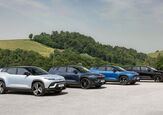
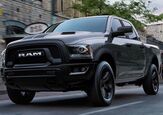
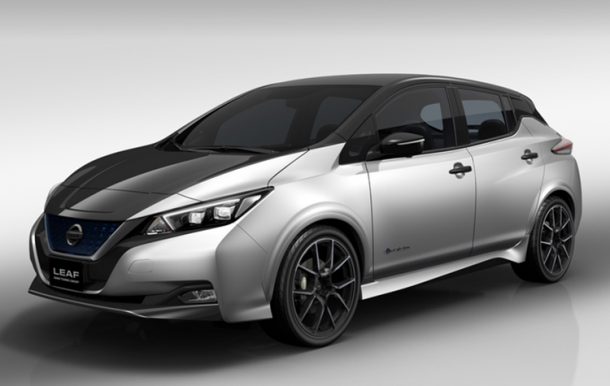
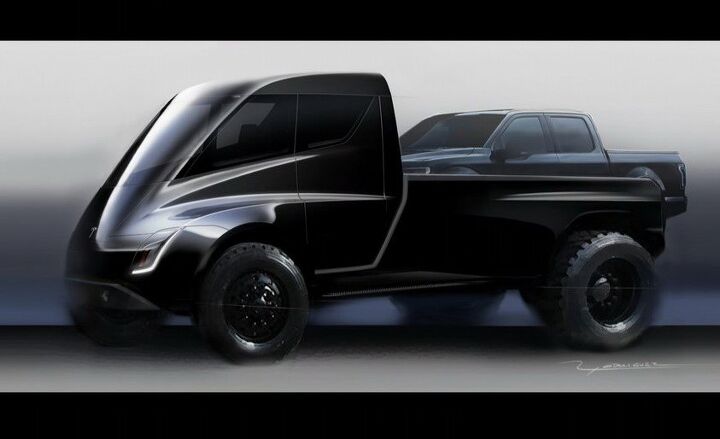
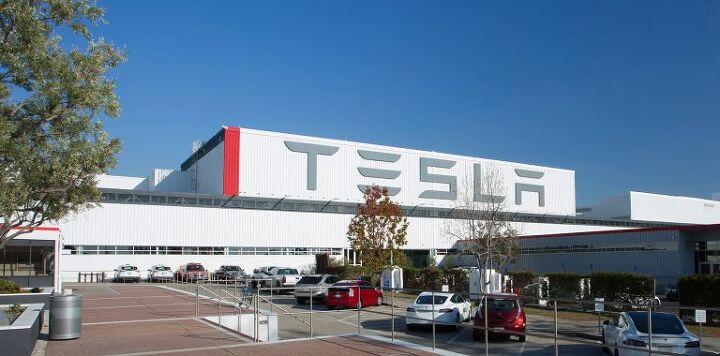

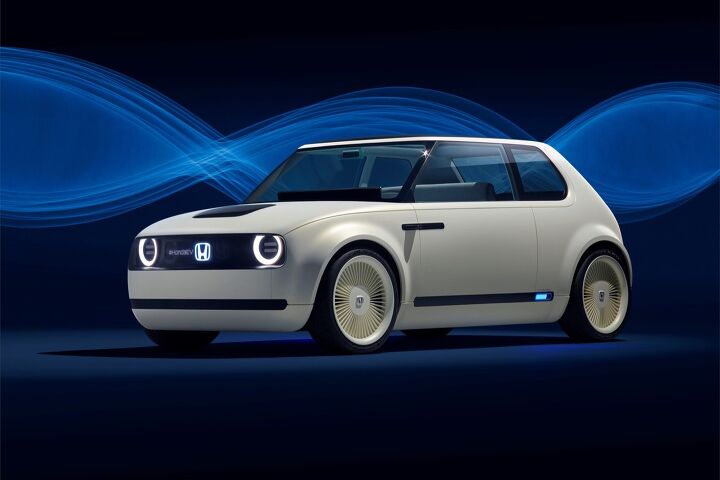
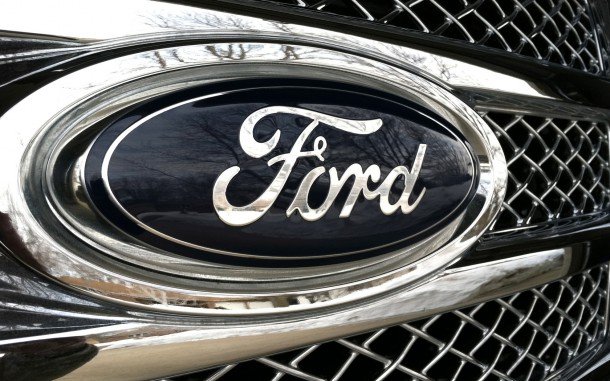

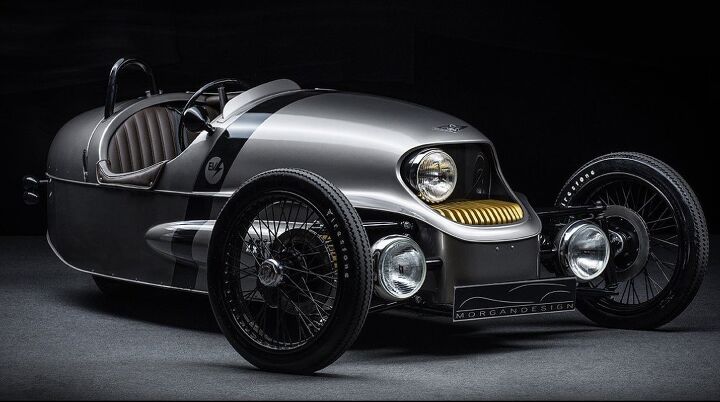
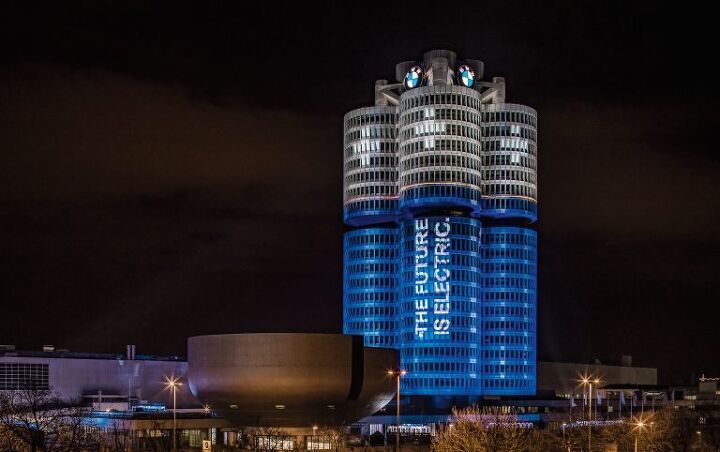

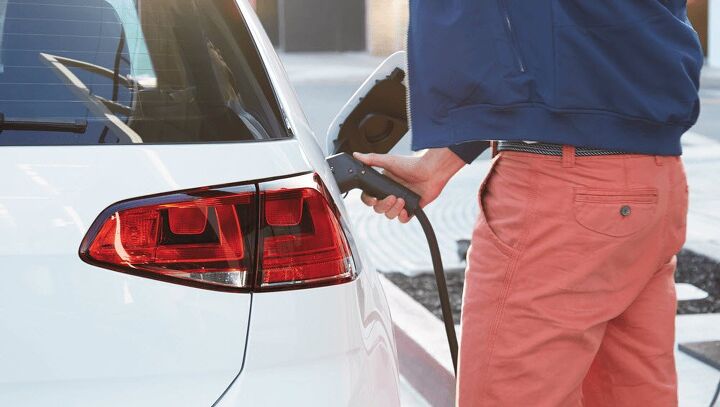
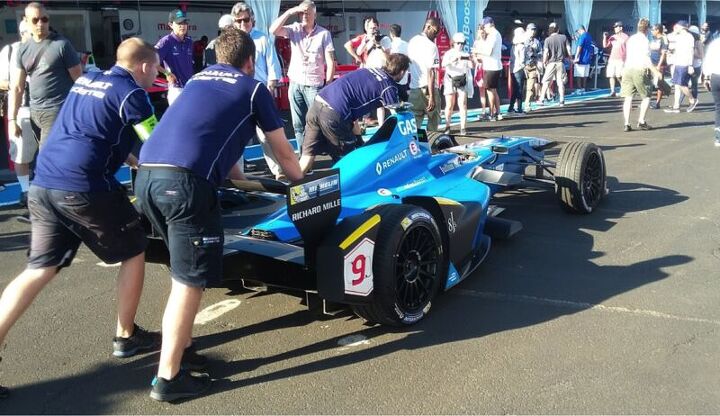

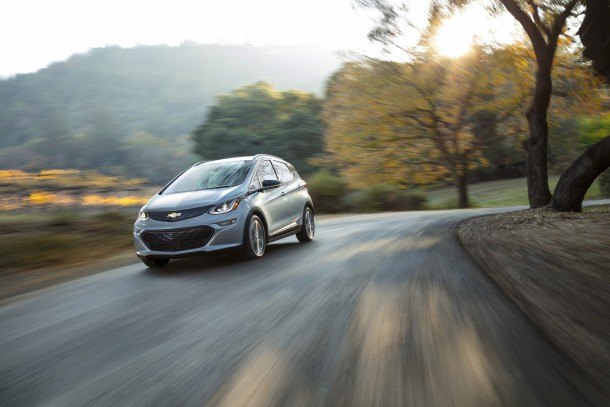

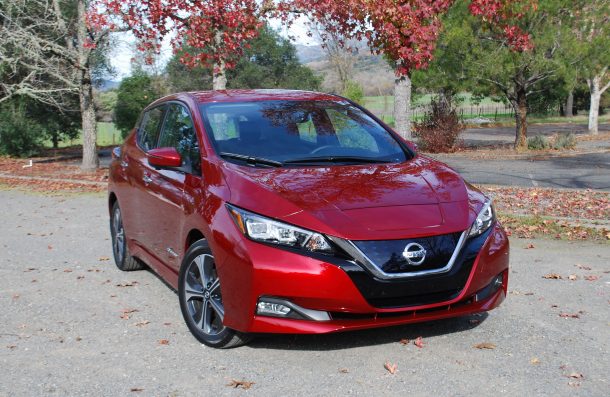

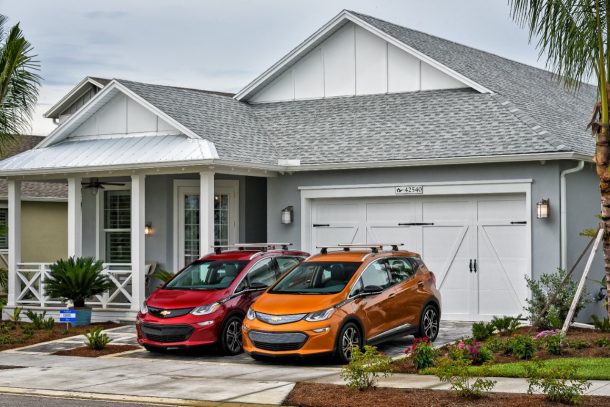
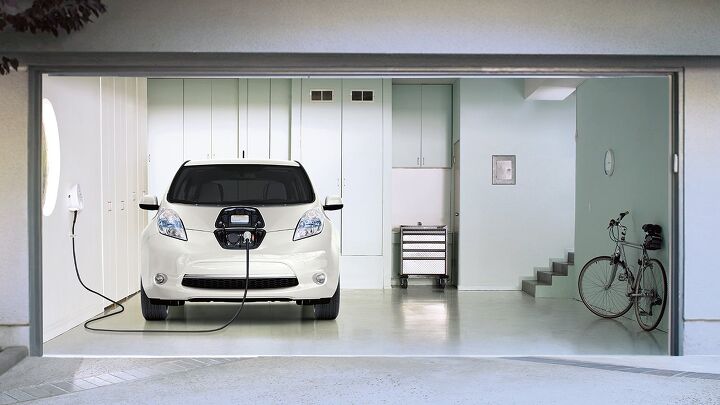
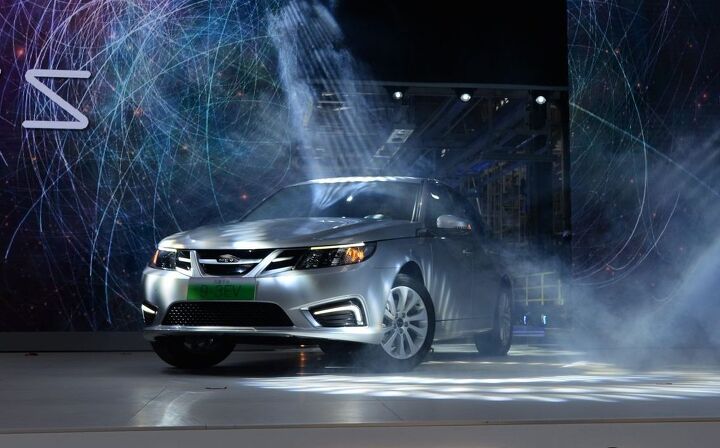

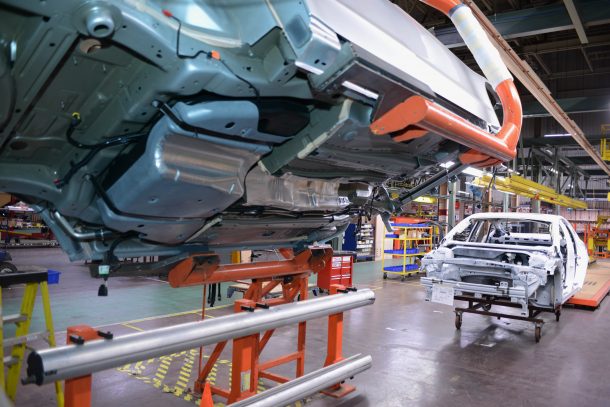




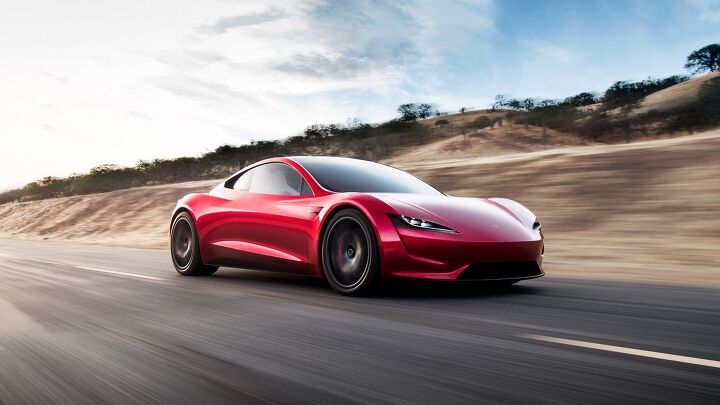




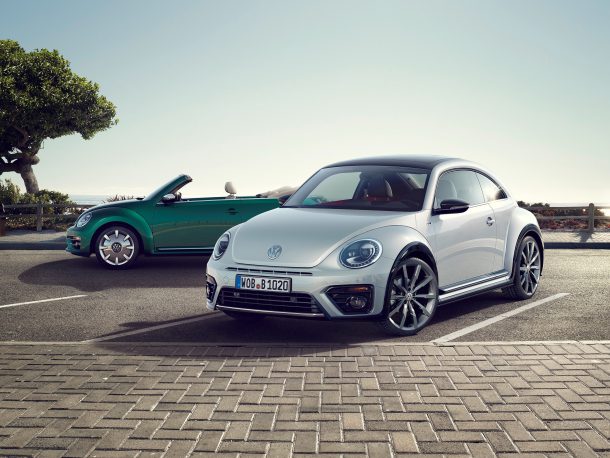
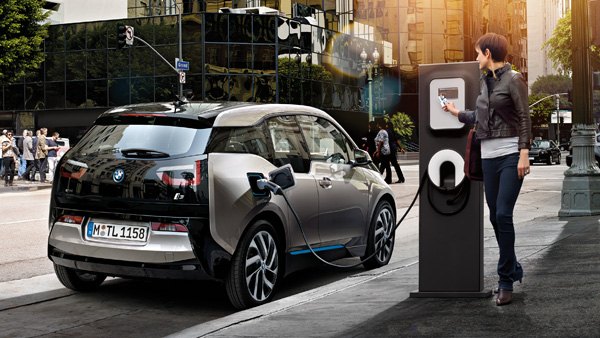



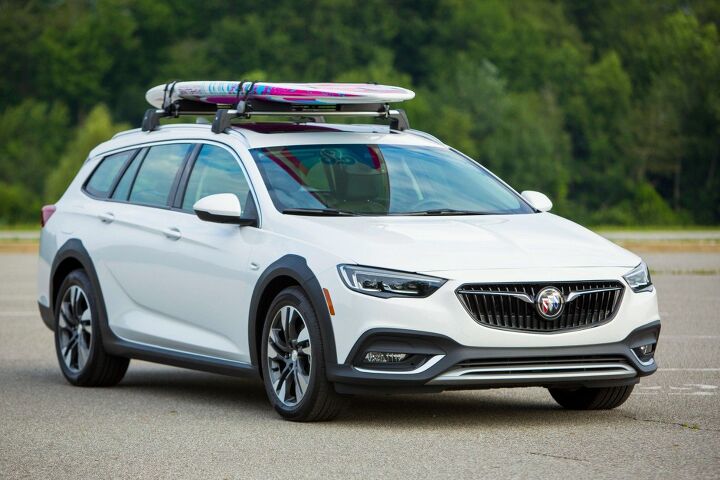



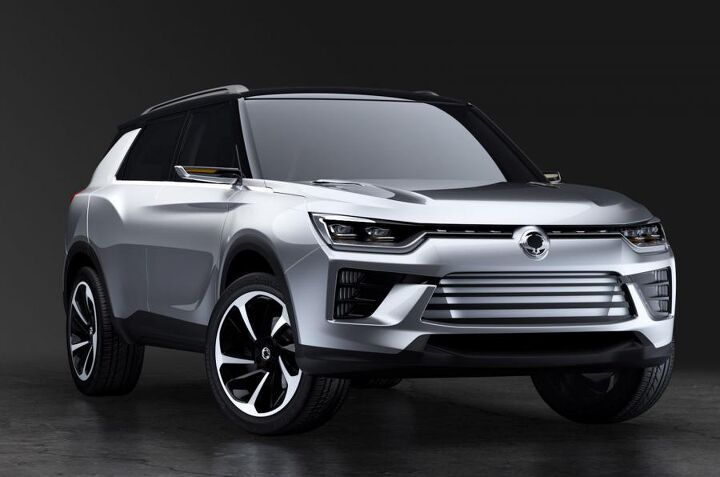
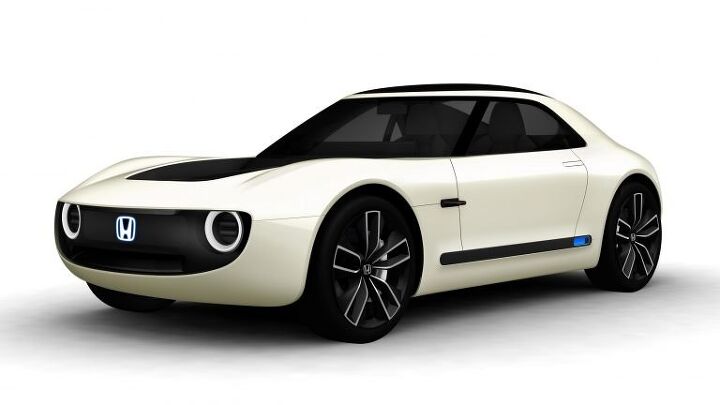
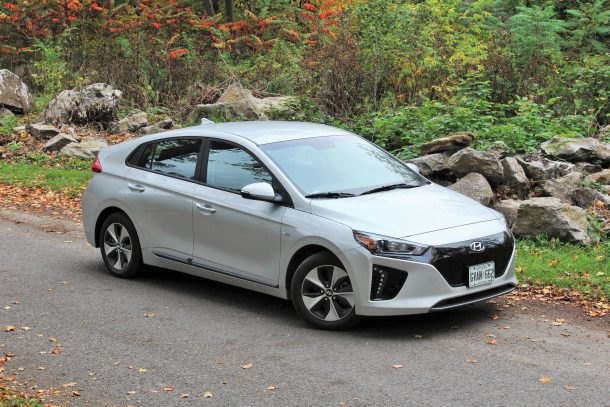


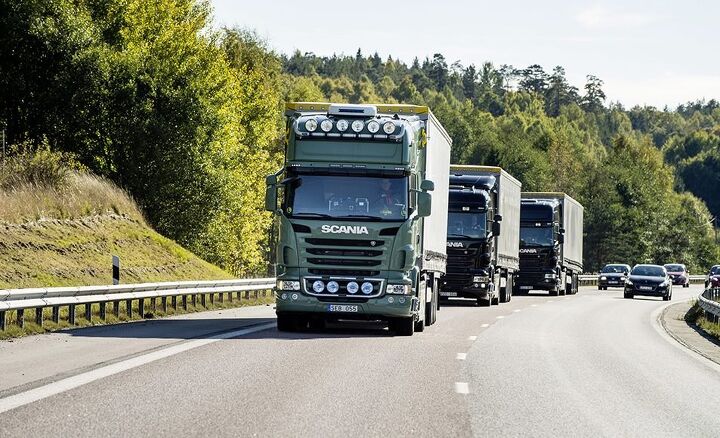
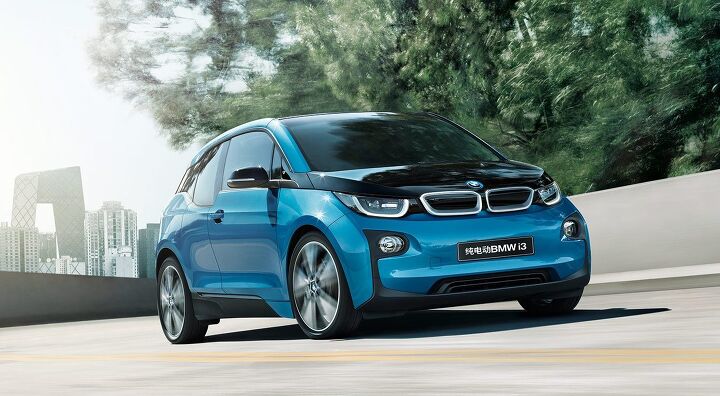
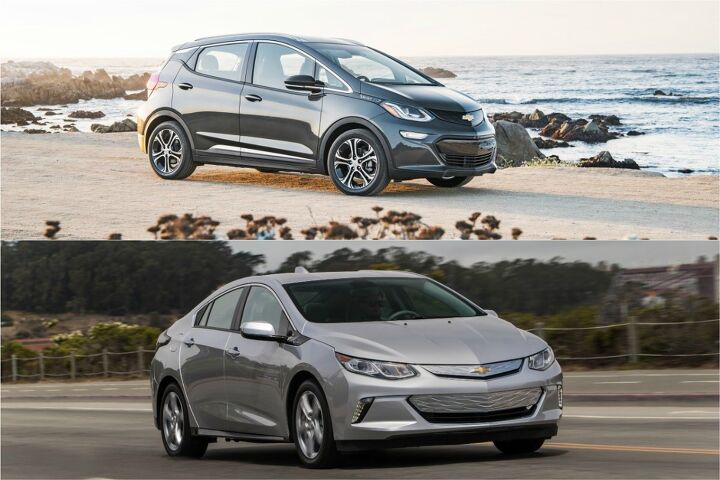


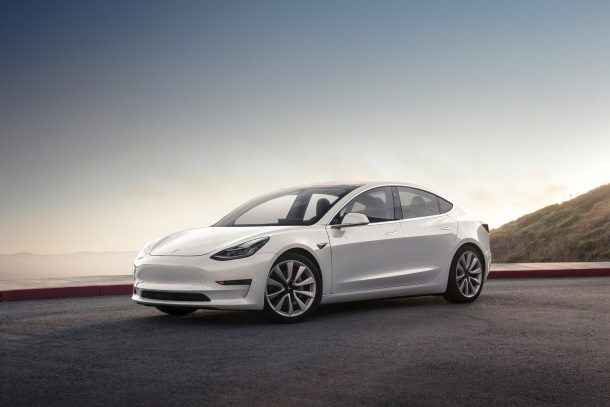
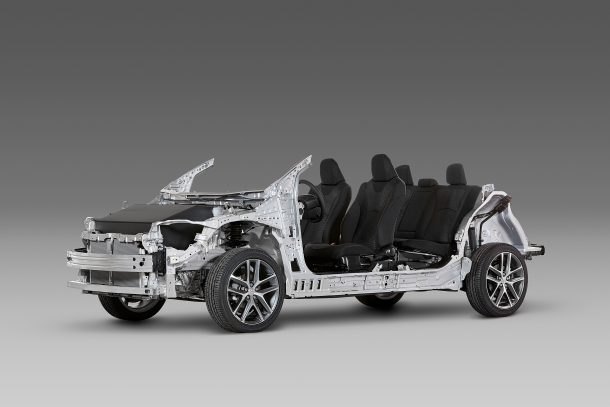
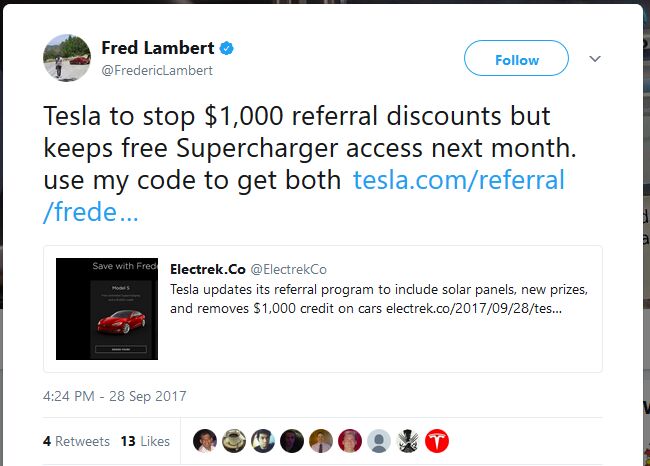
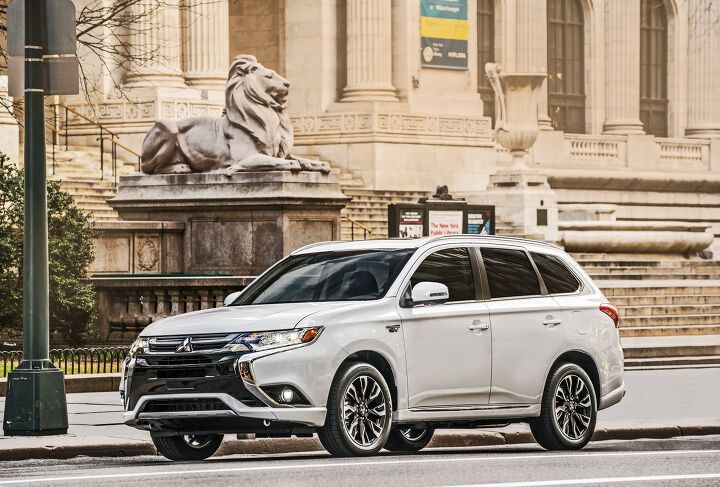












Recent Comments